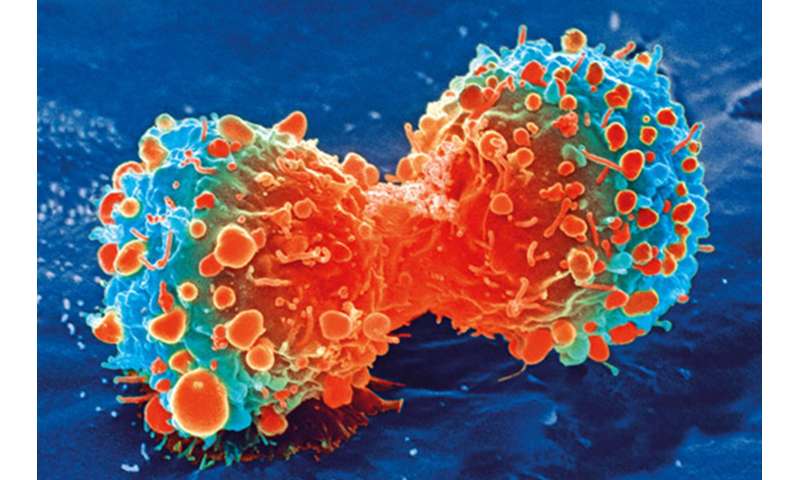Adults with cancer appear more vulnerable to COVID-19


Cancer, particularly metastatic cancer, can be added to the list of medical conditions that pose a significant risk of worse COVID-19 outcomes , suggests a new study. Led by Boston Children’s Hospital and Zhongnan Hospital of Wuhan University, it represents the first large cohort study to examine COVID-19 outcomes in cancer patients.
Findings were published this week in the journal Cancer Discovery.
The study reviewed data from older patients with confirmed COVID-19 at 14 hospitals in Wuhan, China, comparing 105 patients with cancer and 536 patients without cancer, matched for age (median age, 64), hospital, and hospitalization time. The researchers adjusted for multiple additional variables including sex, smoking, and health conditions known to increase risk, including diabetes, hypertension, and chronic obstructive pulmonary disease.
After adjustment for these factors, the COVID-19 patients with cancer had a nearly two-fold risk of experiencing severe symptoms, a three-fold risk for ICU admission, a 2.7-fold likelihood of going on a ventilator, and a two-fold risk for death.
“Although the study was limited to a single province in China, it is a first step toward quantifying the effect of COVID-19 on oncology patients,” says Mauricio Santillana, Ph.D., of the Computational Health Informatics Program (CHIP) at Boston Children’s Hospital, a co-senior author on the paper. “This was still a relatively small sample, so as we get more data we expect our estimates will change. It is important to continue to monitor how oncology patients are responding to the virus.”
COVID-19 and cancer: Greatest risk factors
The greatest increase in risk was seen among patients with metastatic (stage IV) cancers: a 5.6-fold increased risk for death, a 6.6-fold increased risk for ICU admission, a 6-fold increased risk for severe disease, and a 55-fold increased likelihood of invasive ventilation. Patients with non-metastatic cancer did not have significantly different risk than patients without cancer.
Among cancer types, blood cancers (leukemia, lymphoma, and myeloma) posed the greatest risk for worse COVID outcomes, followed by lung cancer.
COVID-19 outcomes were similar in the patients with cancer regardless of whether or not they were still under active cancer treatment. While numbers were small, patients who had undergone cancer surgery or were treated with cancer immunotherapy had the highest death rate and the most severity of illness when compared with those receiving other cancer treatments.
A cross-continental collaboration
The study began when clinicians in Wuhan, rapidly working to manage and document their growing caseload of patients, reached out to CHIP at Boston Children’s for help in analyzing and understanding the data.
“Multiple teams came together from different scientific disciplines with the hope of being helpful,” Santillana says.
Source: Read Full Article